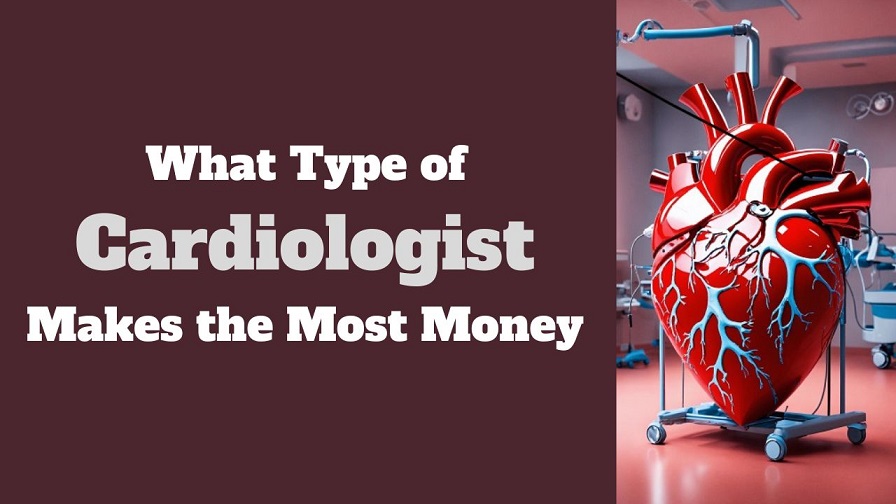What Type of Cardiologist Makes the Most Money?
Cardiology is among the highest-paying medical specialties due to the vital nature of their work and the required advanced technical skills. Several subspecialty areas within cardiology enable cardiologists to earn even higher salaries based on further specialized expertise, expanded scope of practice, and more significant cash-based revenues.
Understanding which types of cardiologists earn the top incomes provides helpful context for physicians considering this rewarding but demanding profession and patients seeking high-quality cardiovascular care.
Interventional Cardiologists
Overall, interventional cardiologists are some of the highest-paid physicians across the entire healthcare system, with average yearly salaries exceeding $600,000 in many regions. These specialized cardiologists perform minimally invasive, catheter-based procedures on the heart and blood vessels like:
- Angioplasty with stent implantation to open blockages
- Ablation procedures to disrupt abnormal electrical signals
- Pacemaker and defibrillator implantation surgeries
- Valvuloplasties to repair narrowed heart valves
Vascular procedures like stenting narrowed arteries or placing vascular plugs, filters, and occluders to seal problematic vessels
Most cardiology compensation models allocate higher proportional reimbursement rates to interventionalists since their technical procedural work generates facility fees and utilization of expensive equipment, including cath labs, imaging systems, and disposable device inventory.
The most lucrative cardiology jobs are often found in hybrid interventional practices closely affiliated or fully integrated with cardiovascular hospitals and surgery centers. Interventional cardiologists’ average salary ranges from the mid $ 400,000 into the $800,000+ levels per year depending on geography, subspecialization, academic ties, and practice structure.
Electrophysiology Cardiologists
Cardiologists who subspecialize in heart rhythm disorders, called electrophysiologists (EPs for short), also earn salaries at the top of all physician pay scales. EPs use minimally invasive catheter procedures and implantation of complex devices to diagnose and treat irregular heartbeats called arrhythmias.
Their niche expertise in cardiac ablation, pacemakers, defibrillators, and other rhythm-regulating modalities generates substantial revenues and demands high billable service rates for lengthy electrophysiology studies.
With an average electrophysiology cardiologist salary ranging from $450,000 to over $600,000, they often earn more than general adult cardiologists and pediatric cardiologists focused predominantly on outpatient medical management.
Academic Cardiologists
An academic cardiology career path offers an appealing work-life balance and income-earning upside for physicians who aim to split time evenly between clinical work, teaching/mentoring, and research/administration.
By seeing patients, supervising fellows-in-training, overseeing labs, writing grants, speaking at conferences, and publishing frequently, academic cardiologists augment their base compensation with productivity bonuses at significant universities and become thought leaders in their domains of interest.
Although lower on average than some interventional private practices, academic interventional cardiologist salaries still range from $400,000 on the low end up to over $700,000 for senior faculty at prestigious programs within high-earning geographic regions.
Considerations By Cardiology Type
While interventional cardiologists, electro physiologists, and academics earn amongst the highest salaries in medicine, general adult cardiologists and pediatric cardiologists in private practice also report competitive annual incomes.
Contributing factors include regional cost-of-living considerations with higher earnings correlated to more expensive metro areas and differences in rural versus urban practice settings. Solo practitioners also keep more revenues versus those in large group settings who share overhead costs. Concierge cardiology models with retainers for access similarly increase direct earnings from a loyal clientele.
Conclusion
All specialty-trained cardiologists report salaries far exceeding most other physicians due to the technical nature of their work managing high-risk cardiac diseases prevalent in aging populations. However, those desiring maximum earning potential can achieve among the highest reimbursement levels across healthcare by subspecializing in interventional techniques, rhythm disorders, or academic medicine reputation building, offering financial upside paired with personal fulfillment benefits in these highly gratifying cardiology subsectors.
Thank you for visiting Jobs Ada






